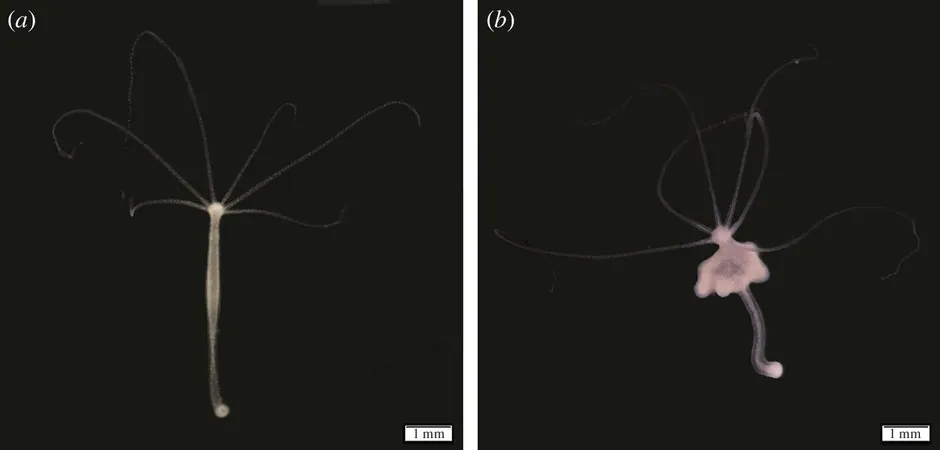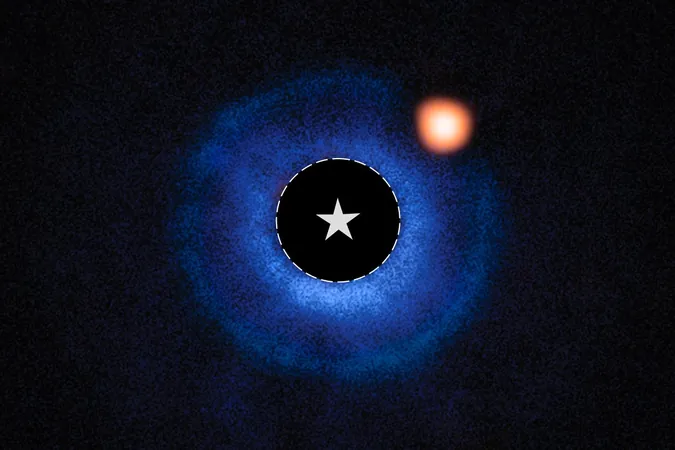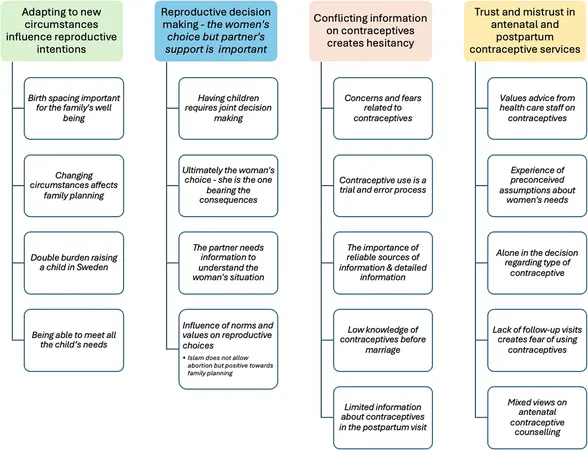
Groundbreaking Discovery: Jellyfish-like Hydras Inherit Tumors Across Generations!
2024-09-23
Author: Siti
Groundbreaking Discovery: Jellyfish-like Hydras Inherit Tumors Across Generations!
In a riveting study published in the Proceedings of the Royal Society B, researchers from the CANECEV laboratory—a collaboration between Deakin University in Australia and the University of Montpellier in France—have made a groundbreaking discovery: jellyfish-like brown hydras, tiny freshwater creatures, can inherit transmissible tumors across generations.
These microscopic marvels, measuring about 25mm in length, thrive in various freshwater environments including ponds, rivers, and lakes. The team's fascinating research reveals that hydras, when raised in laboratory settings, develop tumors that can be passed down to their offspring. Dr. Antoine M. Dujon, a key member of the research team from Deakin's School of Life and Environmental Sciences, emphasized the significance of this phenomenon, likening the tumor transmission to a family heirloom passed from parent to child.
The primary aim of this research was to explore the origins of these tumors in a 'patient zero' hydra and to understand how they are transmitted through generations. The findings offer new perspectives on the transmission and evolution of cancers, not just within hydras, but potentially across other species as well.
The study unearthed several intriguing findings:
1. Tumor Impact
Lab-raised brown hydras frequently develop transmissible tumors, which negatively affect their reproductive capabilities and shorten their lifespans. This poses significant challenges for population sustainability.
2. Variable Tumor Behavior
Interestingly, the tumors are not uniform in behavior; some tumors spread aggressively, while others die out quickly, raising questions about their biology and ecological impact.
3. Microbial Mystery
To the surprise of the researchers, the tumors do not appear to be associated with specific bacteria or microbes within the hydras, indicating a unique mechanism behind their development and transmission.
Dr. Dujon highlighted the broader implications of this research for wildlife conservation, particularly concerning endangered species in Australia, which are grappling with high cancer rates. "Understanding how transmissible cancers form and propagate in these tiny creatures could have significant repercussions for managing similar cancers in other animals. For instance, in the Tasmanian devil population, where a devastating 80% are afflicted with transmissible cancer, insights from this study could inform better prevention and treatment strategies," he remarked.
This eye-opening research not only adds to our understanding of cancer biology but also opens new avenues for conservation efforts, underscoring the interconnectedness of all life forms in the face of disease. Stay tuned as further research in this field could revolutionize the way we approach cancer management globally!







 Brasil (PT)
Brasil (PT)
 Canada (EN)
Canada (EN)
 Chile (ES)
Chile (ES)
 Česko (CS)
Česko (CS)
 대한민국 (KO)
대한민국 (KO)
 España (ES)
España (ES)
 France (FR)
France (FR)
 Hong Kong (EN)
Hong Kong (EN)
 Italia (IT)
Italia (IT)
 日本 (JA)
日本 (JA)
 Magyarország (HU)
Magyarország (HU)
 Norge (NO)
Norge (NO)
 Polska (PL)
Polska (PL)
 Schweiz (DE)
Schweiz (DE)
 Singapore (EN)
Singapore (EN)
 Sverige (SV)
Sverige (SV)
 Suomi (FI)
Suomi (FI)
 Türkiye (TR)
Türkiye (TR)
 الإمارات العربية المتحدة (AR)
الإمارات العربية المتحدة (AR)